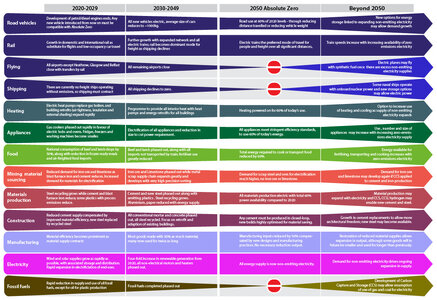- Jun 20, 2005
- 20,363
- 5,531
- 50,935
As it’s Sunday forgive me putting the cat among the pigeons.
Some family and close friends work at HMG research Council involved in many free ranging topics. They passed me this link which cost £5 million of tax payers money.
The U.K. FIRES team ( Oxford ,Cambridge,Nottingham and Imperial College London Universities) through the Engineering and Physical Sciences Research Council prepared this report which is in the open domain for all to read. The table with key milestones is at the bottom of the page , so no need to download the whole report.
Just imagine at 2030 only Heathrow , Glasgow and Belfast airports will be open to the public?
I’d love to know what the scientists amongst you think. I have no view other than I just want to live a quiet happy caravanning life for the next ten years being sensible. NB I gave up smoking decades ago and do recycle regularly😉
https://ukfires.org/impact/publications/reports/absolute-zero/
Some family and close friends work at HMG research Council involved in many free ranging topics. They passed me this link which cost £5 million of tax payers money.
The U.K. FIRES team ( Oxford ,Cambridge,Nottingham and Imperial College London Universities) through the Engineering and Physical Sciences Research Council prepared this report which is in the open domain for all to read. The table with key milestones is at the bottom of the page , so no need to download the whole report.
Just imagine at 2030 only Heathrow , Glasgow and Belfast airports will be open to the public?
I’d love to know what the scientists amongst you think. I have no view other than I just want to live a quiet happy caravanning life for the next ten years being sensible. NB I gave up smoking decades ago and do recycle regularly😉
https://ukfires.org/impact/publications/reports/absolute-zero/




